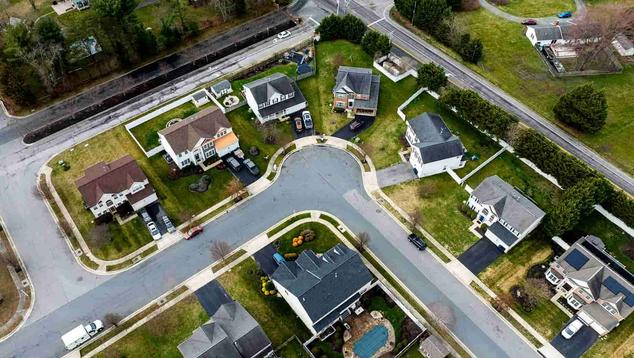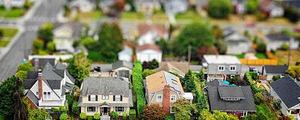WASHINGTON, D.C. -- More Americans than a year ago expect home prices to rise in their local area. At the same time, Americans remain highly pessimistic about the market for homebuyers -- 21% say it is a good time, and 76% say it is a bad time, to buy a house, essentially tying last year’s measures as the worst in Gallup’s trend.
Larger Majority Believe Local Home Values Will Increase
Sixty-eight percent of U.S. adults expect home prices in their local area to increase in the coming year, up from 56% a year ago and among the highest readings Gallup has measured to date. The only higher readings were 71% in 2021 and 70% in 2005 and 2022.
Predictions for housing prices have shifted greatly in the past five years after being relatively steady between 2014 and 2019.
- In 2020, during widespread business closures and economic uncertainty related to the coronavirus pandemic, 40% thought prices would increase, a 22-percentage-point drop from 2019. The 2020 reading was higher than only those between 2008 and 2012, after the housing bubble burst.
- As the economy rebounded in 2021 and 2022 with the U.S. emerging from the pandemic, record-high percentages of Americans predicted higher local housing prices. The median sale price of homes increased about $60,000 in each of those years.
- Last year, interest-rate increases made mortgages more expensive, and housing prices dropped, particularly in the first quarter of the year. In response, a reduced majority of Americans expected home values to go up.
- Now, with housing prices down from their peak, significantly more Americans than a year ago expect prices to rise.
The latest results are from Gallup’s annual Economy and Personal Finance survey, conducted April 1-22.
Americans in All Parts of the Country Expect Home Prices to Rise
Between 66% and 70% of Americans in the four major regions of the country predict that home prices will increase in their local area during the next year. The current figures represent substantial jumps from 2023 in the Midwest (up 22 points) and West (up 15 points), which saw the largest declines between 2022 and 2023.
City (69%), suburban (70%) and rural (63%) residents share similar beliefs about local home price increases in their area over the next year, as do Americans from different income levels and political party affiliations.
Younger Americans, those under 50, are more likely than older Americans to think home prices will rise, 75% versus 60%.
As is typical, renters (73%) are somewhat more likely than homeowners (64%) to expect housing prices to increase.
Perceptions of Homebuying Market Unchanged From Record Low
Currently, 21% of Americans say it is a good time and 76% believe it is a bad time to buy a house. Those figures are essentially unchanged from last year -- 21% and 78%, respectively -- the worst in Gallup’s trend.
Before last year, the prior low saying it was a good time to buy a house was 30% in 2022. All other measures had been 50% or higher, including a record 81% in 2003. Gallup has asked this question annually since 2005, and in 1978, 1991 and 2003.
The public’s pessimism about the homebuying market likely reflects the combination of high home values, high mortgage rates and limited housing supply.
There are no meaningful differences in perceptions of the home market by region, urbanicity, homeownership, income, partisanship or age.
Bottom Line
Americans would likely advise prospective homebuyers to stay out of the market for now because, as they did last year, more than three-quarters say it is a bad time to buy a house. Furthermore, a higher percentage of U.S. adults than a year ago expect prices to increase.
The effect of high home prices is evident in the record 14% who name the costs of owning and renting a home as the most important financial problem facing their family, trailing only inflation among economic matters. Younger Americans, who may lack the wealth to buy homes at today’s higher prices, are significantly more likely than older Americans to cite housing costs as the most pressing financial issue for their family.
The expense of homeownership is especially challenging with today’s higher interest rates, which make mortgages more expensive for prospective homebuyers. The Federal Reserve decided against an interest-rate cut at its May meeting, as inflation remains above the Fed’s target level. But if the Fed cuts rates later this year, it would provide homebuyers with some relief.
To stay up to date with the latest Gallup News insights and updates, follow us on X.
Learn more about how the Gallup Poll Social Series works.
View complete question responses and trends (PDF download).




